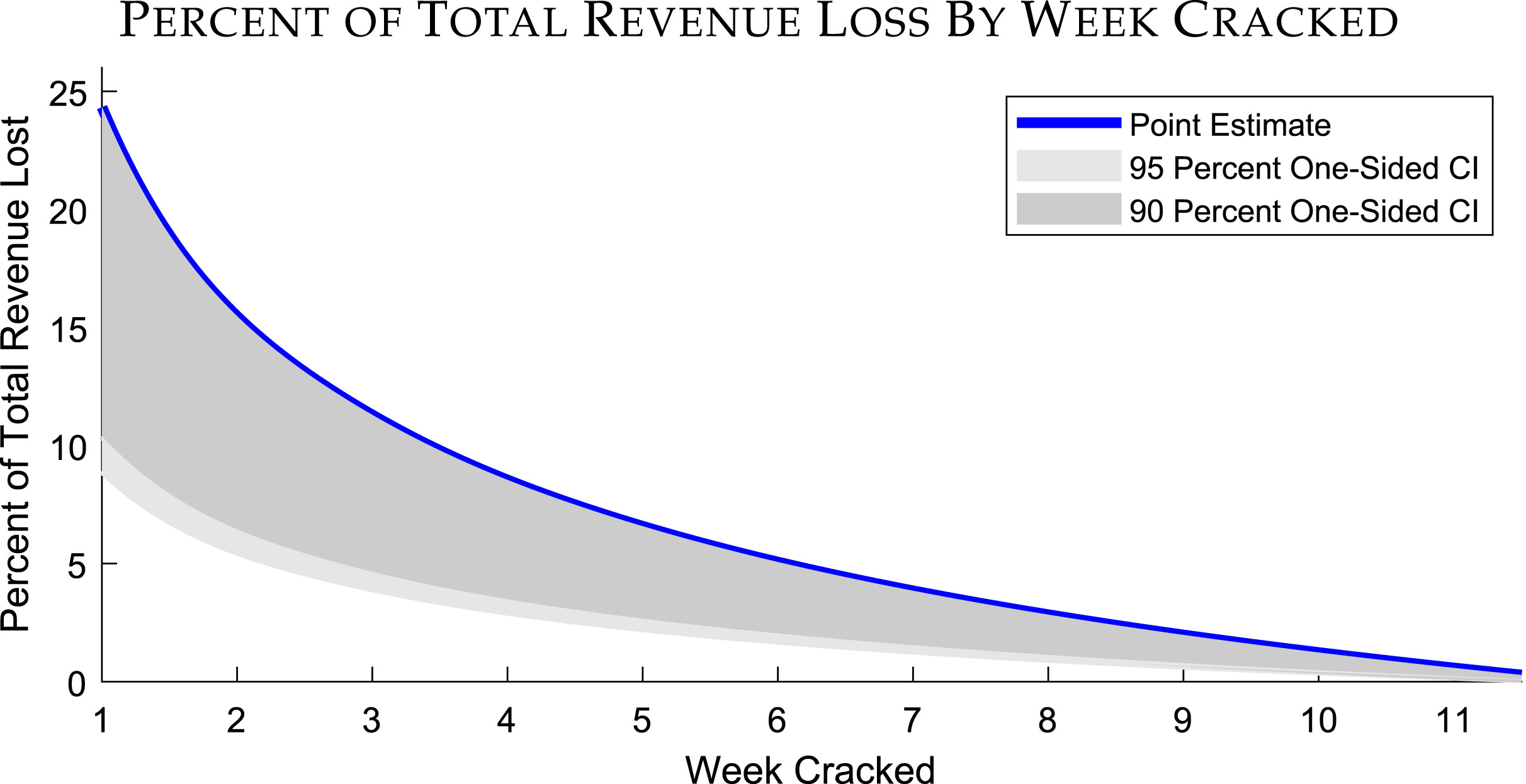LectureMaster
Gold Member
Here's the gaming site news that mentions the journal paper

 www.tweaktown.com
www.tweaktown.com
Here's the actual journal article:
Snippets:
The paper's author, William M. Volckmann II, explains:
I exploit the randomness with which Denuvo is cracked to estimate the effect Denuvo has on protecting revenue from piracy displacement.
When Denuvo is cracked very early on, piracy leads to an estimated 20 percent fall in total revenue on average relative to an uncracked counterfactual, but that effect is weaker the longer it takes for Denuvo to be cracked.
When Denuvo survives for at least 12 weeks, piracy leads to nearly zero total revenue loss on average. The results suggest that Denuvo does protect legitimate sales to an estimated mean of 15 percent of total revenue and median of 20 percent, but there is little justification to employ Denuvo long-term (i.e. for more than three months), especially given that Denuvo can have negative technical side effects and is generally disliked by users.
You know what, I actually went ahead to obtain the full paper and read it through. It has well-designed mathematic models, however, all the sales data isn't present in the paper, as the author claim "Data will be made available on request."
One of the author's conclusions is as follow.

Piracy can reduce sales revenues by 20%, a sizable loss for publishers and developers
A new study indicates that Denuvo DRM helps protect 'total revenue from piracy by a mean of 15% and a median of 20%' on the initial impact of sales.
Here's the actual journal article:
Snippets:
The paper's author, William M. Volckmann II, explains:
I exploit the randomness with which Denuvo is cracked to estimate the effect Denuvo has on protecting revenue from piracy displacement.
When Denuvo is cracked very early on, piracy leads to an estimated 20 percent fall in total revenue on average relative to an uncracked counterfactual, but that effect is weaker the longer it takes for Denuvo to be cracked.
When Denuvo survives for at least 12 weeks, piracy leads to nearly zero total revenue loss on average. The results suggest that Denuvo does protect legitimate sales to an estimated mean of 15 percent of total revenue and median of 20 percent, but there is little justification to employ Denuvo long-term (i.e. for more than three months), especially given that Denuvo can have negative technical side effects and is generally disliked by users.
- Denuvo DRM protects total revenue from piracy by a mean of 15% and a median of 20%.
- Piracy causes mean total revenue to decrease by 20% when Denuvo is cracked quickly.
- Piracy causes zero mean total revenue loss when Denuvo survives for 12 weeks or more.
- The characteristics of a game cannot explain its likelihood of being cracked.
You know what, I actually went ahead to obtain the full paper and read it through. It has well-designed mathematic models, however, all the sales data isn't present in the paper, as the author claim "Data will be made available on request."
One of the author's conclusions is as follow.
When Denuvo survives for at least 12 weeks, piracy leads to nearly zero total revenue loss on average. The results suggest that Denuvo does protect legitimate sales to an estimated mean of 15 percent of total revenue and median of 20 percent, but there is little justification to employ Denuvo long-term (i.e. for more than three months), especially given that Denuvo can have negative technical side effects and is generally disliked by users.








